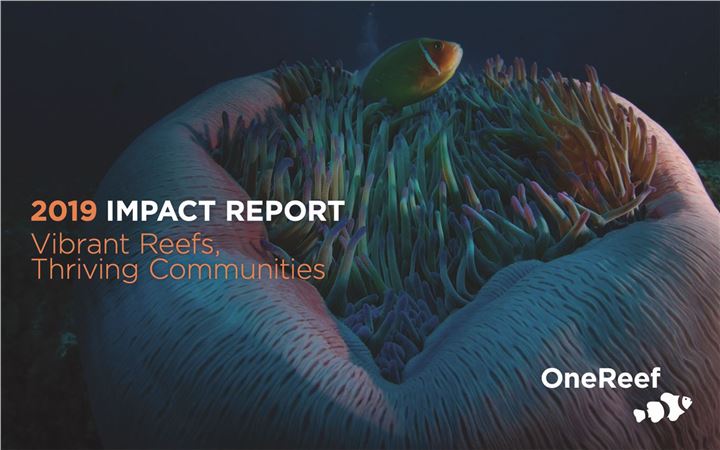Summary
Working with Richard Thaler and the University of Chicago, we will set the stage to pilot and test a new market-based model for generating private revenues to support coral reefs. The new private stream is needed to co-finance long-term agreements under an emerging public-private partnership in Palau.
Description
With help from financier and OneReef supporter, Dr. Russell Fuller (Fuller & Thaler), we formulated a concept for massively scaling a highly leveraged finance model. The approach uses Nudge Theory to engage employees at large companies who donate and partner directly with traditional stewards who protect globally valued coral reefs and associated terrestrial habitats.
Companies benefit by improving the way they engage their employees, increasing their capacity to retain top talent, and improving their reputation. At the invitation of Richard Thaler, we then worked with an MBA class at the University of Chicago’s Booth School to refine the concept.
With a clear working model in hand, we engaged three companies to formulate a plan for a pilot that would generate revenue for a portfolio of projects. Moreover, we formed an alliance among three non-profit organizations, all of whom support local communities that protect globally valued ecosystems, including coral reefs, tropical forests, and African savannahs. We need an alliance in order to present a more diverse and attractive portfolio of prospects for co-investing with communities toward healthy coral reefs, forests, and wildlife populations.
Finally, we engaged an executive coach to help us design a pilot phase of the project, to include an independent execution team and format for negotiating with companies. We are now prepared to negotiate final terms with at least one company for a two-year pilot effort.
2023 Update
One Reef now receives vital support from the European Union, Australia, New Zealand, and the United States through a transformational 5 million Euro investment from the Kiwa Initiative.
One Reef reports "Our growing role in the region was reflected in the signing of a formal agreement with Koror State, Palau, arguably the most economically powerful government entity in the Micronesia Region." One Reef also reports being part of a collective of three organizations that will expand their impact across a broad region of the Pacific from Palau to Fiji to Tahiti.

The Walker Foundation provided a $60,000 seed grant in 2013, and a total of $290,000 in funding, before our final grant in 2019. See attached 2019 Impact Report on the work of One Reef.
Purpose
An economic imbalance occurs because many people value the existence of coral reefs but as yet do not exercise those values by contributing to beneficial management and protection. Ultimately, we will leverage the corporate and finance sector to create a way for those who value the existence of reefs to contribute in ways that are beneficial to all parties. In essence, we will apply the user pays principle, extending it to "non-consumptive" use of coral reefs by those willing to contribute to continued existence of coral reefs.
Scope
The scope is international in nature, applying to globally valued coral reefs that produce both market and non-market goods and services.
If successful, the model can contribute to US interests by enabling small-island developing states like Palau in the western Pacific to better protect and benefit from coral reefs and associated fisheries and tourism revenues. Such an outcomes can presumably strengthen longstanding diplomatic and economic relationships developed since the end of WWII.
Information Dissemination
At this early stage, our documentation is primarily internal.
Amount Approved$20,000.00
on 7/10/2019
(Check sent: 7/12/2019)